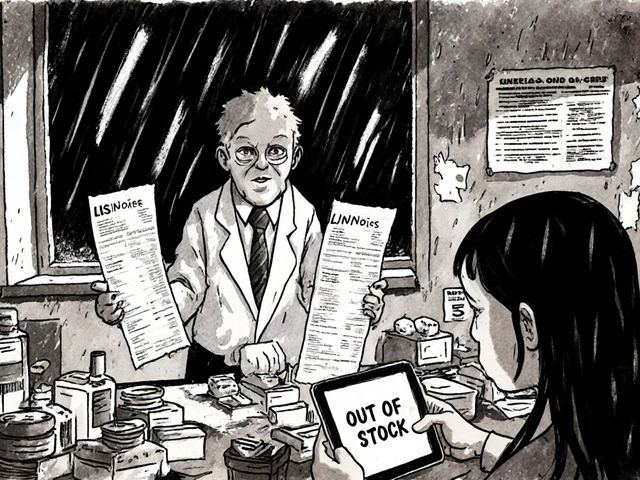Cough – Causes, Treatments & Quick Relief Tips
If you’ve been hacking away at a cough all day, you’re not alone. Coughing is your body’s way of clearing irritants from the airways, but it can quickly become annoying or even painful. Below you’ll find straight‑forward info on why coughing happens and what you can do right now to feel better.
Common Reasons a Cough Starts
The most frequent culprits are viral infections like the common cold or flu. In those cases the cough usually lasts 1–3 weeks and fades as the virus clears. Bacterial infections such as bronchitis or pneumonia can cause a deeper, more persistent cough that may need antibiotics.
Allergies are another big player. Pollen, pet dander, dust mites – they all trigger an irritant‑driven cough when your immune system overreacts. If you notice the cough flares up outdoors or after cleaning, allergies might be to blame.
Dry indoor air, especially in winter, dries out the throat and makes coughing more likely. Smoking, vaping, or exposure to secondhand smoke also irritates the lining of the lungs, leading to a chronic cough that can linger for months.
Lastly, reflux (GERD) pushes stomach acid up into the throat, causing a tickle that sparks a cough. If you cough more at night after eating, this could be the cause.
How to Soothe a Cough Safely
Start with hydration. Warm water, herbal tea, or broth keeps mucus thin so it can move out easier. A spoonful of honey (for adults and kids over 1 year) coats the throat and cuts down irritation – just don’t give honey to babies under one.
If you’re dealing with a dry cough, a humidifier adds moisture back into the air and reduces the tickle feeling. For a wet cough, gentle chest percussion (lightly tapping your back) can help loosen mucus before you expectorate it.
Over‑the‑counter options are simple too. Dextromethorphan suppresses the cough reflex for dry coughs, while guaifenesin thins mucus for productive coughs. Always follow the label and check with a pharmacist if you’re on other meds.
When allergies trigger coughing, an antihistamine like cetirizine or loratadine can calm the response. Nasal saline rinses wash out pollen and dust, giving your throat less to deal with.
If your cough lasts more than three weeks, gets worse, or comes with fever, chest pain, or shortness of breath, it’s time to see a doctor. Persistent coughing could signal asthma, chronic bronchitis, or something that needs prescription treatment.
In summary: keep hydrated, add moisture, use simple OTC meds when needed, and watch for red‑flag symptoms. These steps usually get most coughs under control fast, letting you get back to your day without the constant throat irritation.
Coughs and Respiratory Infections: What to Watch Out For
This article breaks down the basics of coughs and how to spot the difference between a harmless tickle and something that needs more attention. Learn how common respiratory infections show up, what makes some coughs last longer, and when it's time to check in with a doctor. Get tips on managing everyday symptoms, staying comfortable at home, and spotting warning signs early. Stay informed and know how to protect yourself and your loved ones during cough season. Perfect for anyone who wants practical advice without medical jargon.
About
Medications
Latest Posts


How to Buy Cheap Generic Tamoxifen Online Safely
By Orion Kingsworth Oct 4, 2025

Top 5 Alternatives to NorthwestPharmacy.com for Your 2025 Prescription Needs
By Orion Kingsworth Feb 4, 2025

Annual Savings from FDA Generic Drug Approvals: Year-by-Year Breakdown
By Orion Kingsworth Dec 10, 2025

